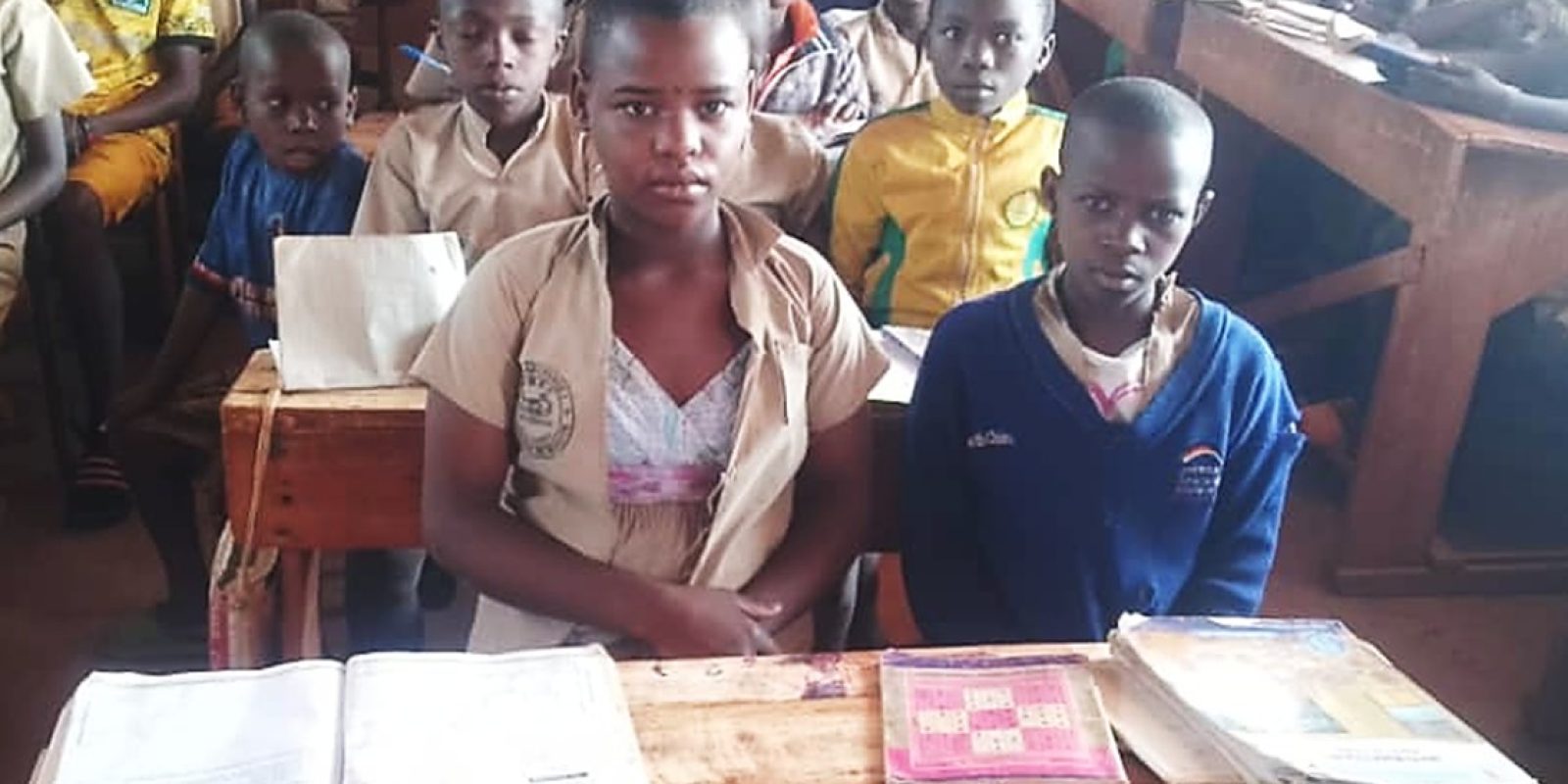Second Opportunities through Education: Former Child Soldiers Share Their Stories
24 January 2024|Paula Casado Aguirregabiria
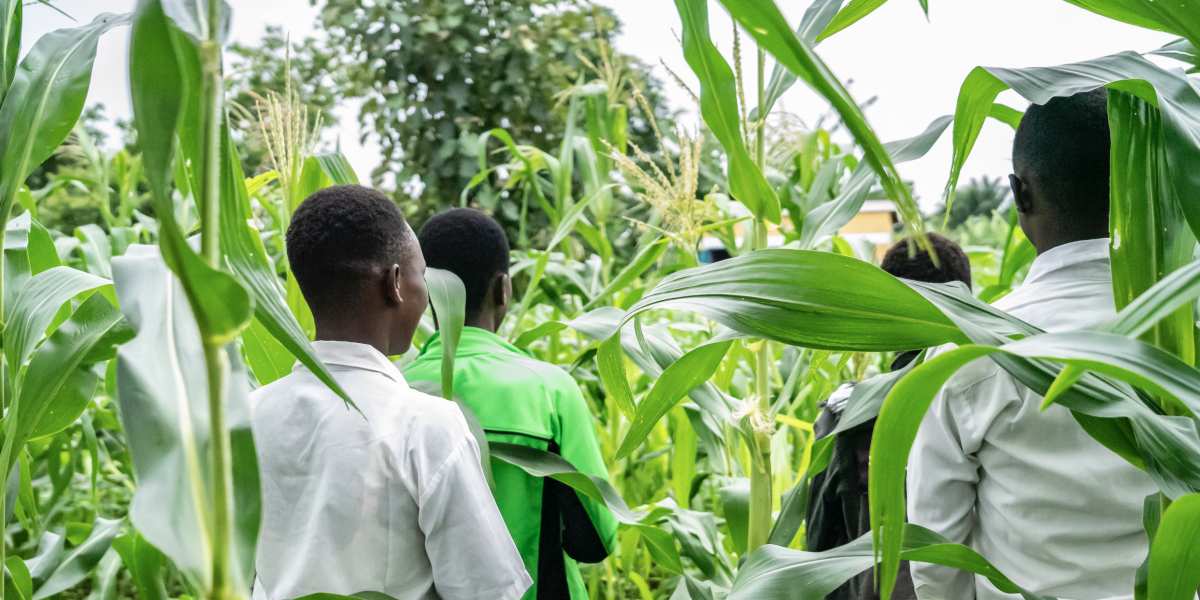
In the heart-wrenching testimonials of Shannon*, Joline* and Marlene* we catch a glimpse of the harrowing experiences they endured as child soldiers, also known as “Lost Boys” or CAAFAG (Children Associated with Armed Forces and Armed Groups).
Despite the dark chapters of their past, these courageous youths share inspiring stories of resilience, transformation, and the support they found through the Jesuit Refugee Service (JRS) and their access to education.
Shannon’s Journey to Education and Healing
Shannon, at just 18 years old, vividly recalls being forcibly recruited to become a CAAFAG at the tender age of 15 years old.
The militias kidnapped her when she was attending a funeral close to her hometown. She was not the only child taken. According to her, there were many more. Most of them were killed and only few of them, Shannon among them, were taken “to the bush”, as she recalls with pain.
She was lucky enough to be able to escape the horrors from the bush after spending only six months with the para-military group.
Despite the distressing experiences, Shannon summoned the courage to escape and discovered a lifeline in JRS. The organization not only covered her school fees but also provided essential non-food items (NFI) like moskito nets, mattresses, and psycological accompaniment.
“When I escaped from the bush, I was so lost… so the moment I reached the first village, I ended up going to a church. There, they helped me find my mother and brought me to her. It was then when JRS knew about my case and came to help me and my mom,” shares Shannon with us.
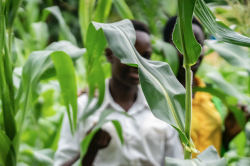
With JRS’s support, Shannon is back in school, reigniting her dream of becoming the president of South Sudan. Her story illustrates the transformative power of education and the crucial role organizations like JRS play in rebuilding shattered lives.
It has been now two years since Shannon came back from the bush and she shines with happiness and pride for being able to continue with her studies.
Joline: A Survivor’s Tale of Escape and Healing
Joline’s narrative paints a haunting picture of life as a child soldier.
Abducted as well at the age of 15, she endured physical and mental torment for two long years. They were a group of five children abducted, out of whom three were killed in the hustle and only two, Joline and another boy, were taken to the bush with the paramilitary group.
The act of murdering children in front of others is a technique used by these kinds of groups to prove power and boldness: if we can kill them, we can also kill you.
Joline faced relentless pressure to conform, including being coerced into acts she found morally reprehensible. The memory of her first kill still invades her mind still today.
“They killed both my parents in the time they kidnapped us. I did not see it, but they showed me their bodies before taking me… That memory still haunts me,” she tells us.
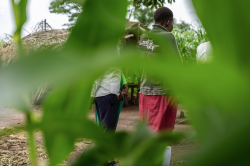 Despite of all, with remarkable bravery, she seized an opportunity to escape while fetching water, seeking refuge in a town that eventually led her to JRS.
Despite of all, with remarkable bravery, she seized an opportunity to escape while fetching water, seeking refuge in a town that eventually led her to JRS.
She and two other children were sent to fetch water, when she profited to scape and hide in the forest. She recalls being hidden while the group was looking for her. When night came, they stopped searching and she could continue walking in the dark to reach any village where she could ask for help.
Despite the ongoing challenges, Joline is living with her sister and she is back in school, learning English and reclaiming her identity. Her story sheds light on the lasting scars of war and the importance of psychological support for survivors.
Marlene: A Determined Return to Education
Marlene’s story is one of tenacity and dreams. Abducted while she was with her father, she faced unimaginable choices within CAAFAG. Her refusal to comply with heinous acts marked the beginning of her arduous journey toward liberation.
Having her father killed in front of her, the paramilitary group tried to force her into killing her own mother. To what she refused bravely.
For two long years she was in the bush with the paramilitary group, where she melted and started behaving like one of them. She was even offered in many occasions to become a deputy chief or even to marry the chief. Her uncle was part of the militia, and that helped her to get some protection within the group.
Nevertheless, one day she did something that opened her eyes.
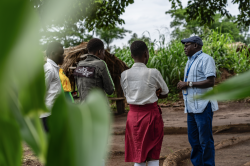
“I was talked into attacking my aunt, who was walking to my grandparents’ home. I ambushed her in the road and stole everything from her. Everything. When I came back to the group, I started thinking about what I had done: I had stolen from my own family, from my aunt, from my brother, from my cousins… It was then when I realized what I was doing was not okay at all. That was the moment when I decided I had to leave,” Marlene tells us.
Escaping under the cover of darkness, Marlene navigated through fear and uncertainty to reunite with her family. She asked her uncle to help her scape, and so he did. At night while the others were sleeping or passed out due to the alcohol consumption, her uncle walked her to somewhere where she could hide throughout the night.
The morning after, she started walking until she found her way to the closest village and was helped by the village chief.
The chief helped her reunite with her mother, who, once she saw Marlene, kept shouting “The lost one is back! The lost one is back!”. The family was grateful for her return, and they were able to start all-over, with no grievances nor guilts. Forgiving and forgetting.
JRS played a pivotal role in supporting Marlene’s integration into society, providing essential resources and school fees.
Despite societal prejudice upon her return, the local chief’s intervention helped dispel misconceptions, fostering her reintegration. Now, she is happy to be back and enjoys with the other villagers.
She explains us how, at school, not only she improved her capacity of learning and counting, but also, she learnt her manners, and how to behave in society again. For what she is extremely grateful.
Marlene’s tale is a testament to the transformative power of education and community acceptance.
JRS continues walking with her on her path for reconstruction and hope. With mental health, counseling, non-food items and school fees provision, we accompany her to become the person she was meant to be.
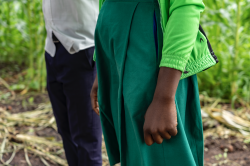
Overcoming Challenges and Building Futures
The similarities in the testimonies underscore the uniformity of trauma experienced by both boys and girls asCAAFAG. However, the narratives also illuminate the paths to healing through education, community support, and individual resilience.
While the scars of war remain, these young individuals are reclaiming their lives. Organizations like JRS play a crucial role in offering a lifeline to those affected by conflict, helping them rebuild, reintegrate, and dream of brighter futures.
As we reflect on these testimonials, let us remember the strength within the survivors and the importance of continued support in rebuilding lives shattered by conflict.
* For protection concerns, the names and personal details of the youths interviewed have been modified.

